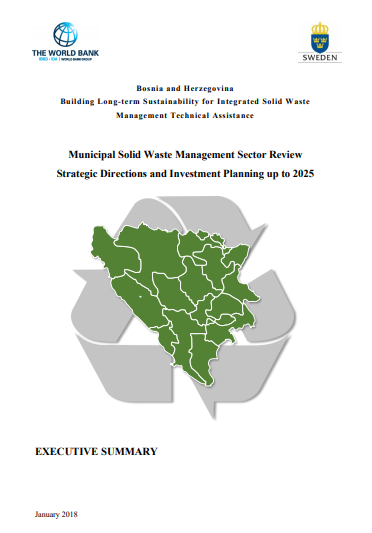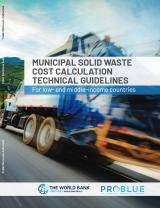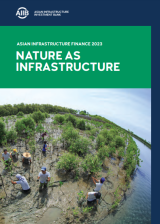
-
Country/City
Bosnia and Herzegovina
-
Topics
Financing, Private Sector, Policy and Governance
-
Published On
January 1, 2018
-
Author(s)
The World Bank, Kremena Ionkova, SIDA
This report includes an assessment of the current municipal solid waste situation in Bosnia and Herzegovina (BiH) including investments and actions needed for improvement. In order to minimize the required tariff, increase an assessment was made of the cost aspects of current operations. The study reveals that actual costs are rather high which may indicate in-efficiency but at the same time it appears that municipalities don’t have a clear cost allocation system for solid waste services (waste collection and disposal) as they carry out also other services such as street cleaning, snow cleaning, etc. In addition, the current tariff for households includes a 17 percent value added tax (VAT) surcharge while in international practices especially within European Union (EU) member states the waste services for households are excluding VAT as tariff is considered to be a tax. The report also shows that costs will be reduced in case larger quantities of waste can be handled through cooperation of municipalities. Cost calculations are presented in the report comparing single municipal services with regionalized services for both waste collection and disposal. In addition, road conditions should allow high capacity truck transport between transfer stations and the regional landfill and annual volumes of waste should not be small. The report concludes that implementation of transfer stations requires a careful site-specific analysis. Future role of the municipalities is foreseen to be shift away from direct waste collection and disposal services and become shareholders of regional companies for collection and disposal, raising public awareness, and dealing with potential complaint.
Executive Summary Part A - Federation of Bosnia and Herzegovina Part B - Republika Srpska Part C - Brcko District



